
Editor's Note: This story originally appeared on Point2.
There was a time when the idea of a cutting-edge city brought to mind images straight out of a “Jetsons” episode. And with the advent of self-driving cars, voice-controlled devices and blockchain technology, it’s easy to envision our cities headed that way.
But what does a cutting-edge metropolitan area look like today? And which U.S. metros are closest to the visions we’ve had of the future?
To answer that question, CommercialCafe published a recent report analyzing 10 key metrics that identify which metros are on the cusp of forefront urban development. The metrics are:
- Residences with electric vehicle (EV) access
- EV charging stations per 100,000 residents
- Bike-sharing stations per 100,000 residents
- Tech and green tech jobs
- Green units per 100,000 residents
- Green office buildings per 100,000 residents
- Energy Star buildings per 100,000 residents
- Average internet speed (Mpbs)
- Percentage of households with broadband access
- Startups versus total businesses
Analyzing these metrics on a per capita basis, the report revealed the most cutting-edge U.S. metros in terms of technological advancement and urban amenities. Here they are.
1. Boulder, CO
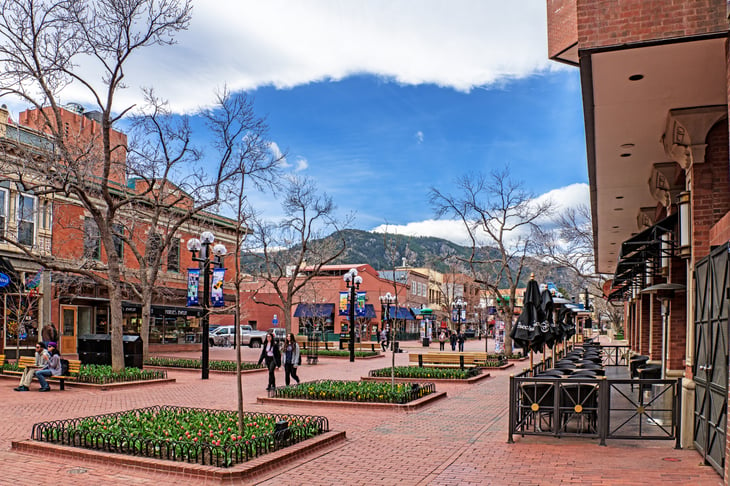
Topping the charts, Boulder ranked highest across several metrics, namely the number of EV charging stations per 100,000 residents, bike-sharing facilities and Energy Star buildings.
The metro also scored valuable points for the number of homes with EV access (10%) and the percentage of jobs in tech and green tech industries (16%), ranking second for both metrics. In addition to this, Boulder stood out for the number of households with broadband access (92.87%) and startups (nearly 20% of total businesses).
2. Silicon Valley, CA
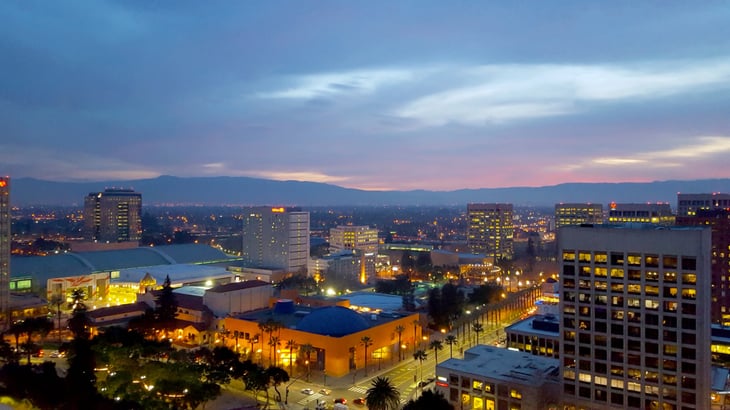
Right after Boulder, Silicon Valley continues to shine as a tech mecca.
Nearly 21% of the jobs in the metro are in tech and green tech industries, the highest number in the U.S. Staying true to its reputation of being one of the nation’s smartest metros, it also ranked first for the number of homes with EV access and second for the amount of EV charging stations per 100,000 residents.
Last but not least, it also topped the charts in terms of broadband access, at 93.27% of its households.
3. Washington, D.C.
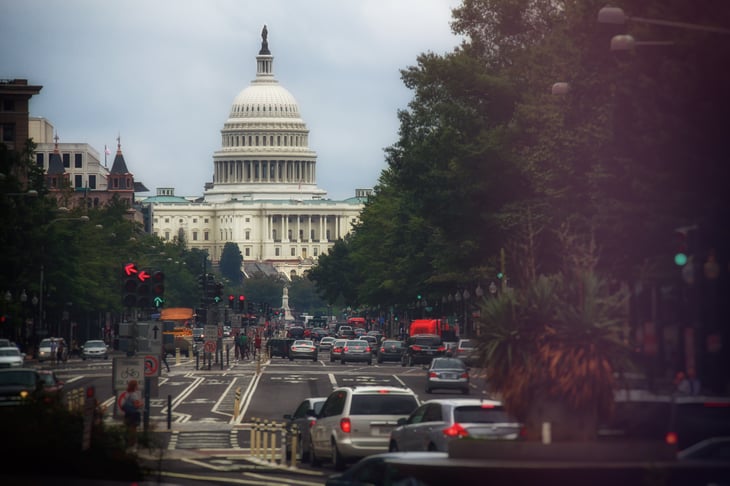
A burgeoning tech-savvy metro, Washington, D.C., jumped to a well-deserved third spot in the chart.
The metro hosts the highest number of green units (1,029 per 100,000 residents) and ranked second for green offices, Energy Star buildings and bike-sharing stations per 1,000 residents. What’s more, with an increasing number of startups, as well as Amazon’s new HQ2 being developed in nearby Arlington, Virginia, the metro is only bound to get smarter.
4. San Francisco, CA
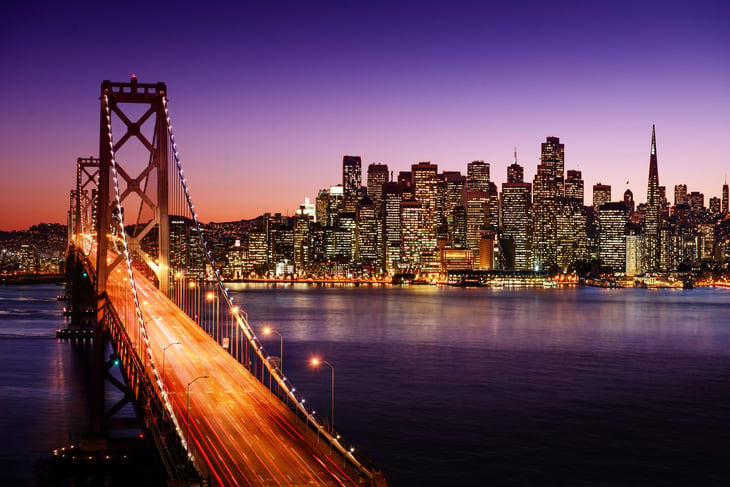
The Bay Area provides another entry to the chart, with San Francisco landing fourth. The metro came in third for EV charging stations and green office buildings. It also ranked fifth across several metrics, namely the percentage of tech and green tech jobs, bike-sharing facilities, homes with EV access, Energy Star buildings and internet speed.
5. Austin, TX
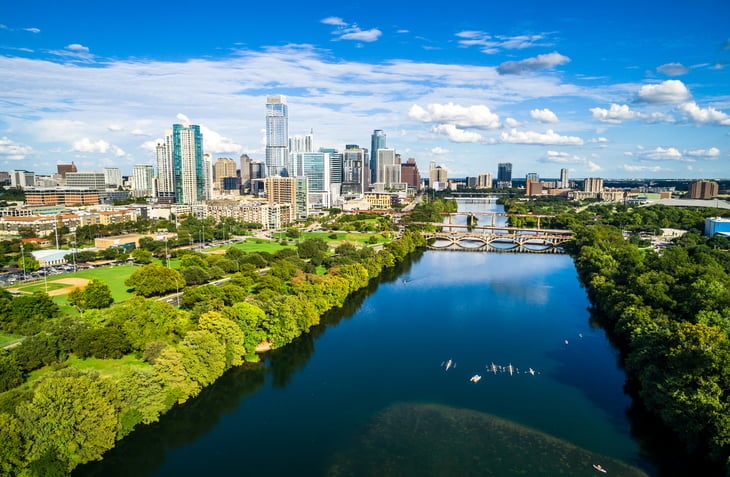
Austin has been making a name for itself as an up-and-coming tech hub for years, and it enjoys the fifth spot in the smartest U.S. metros chart.
The city continues to attract tech companies, with 21.6% of its businesses being startups — the highest figure across all metros in the study. The number of local tech jobs, green units and Energy Star buildings also helped bolster its total score.
6. Seattle, WA
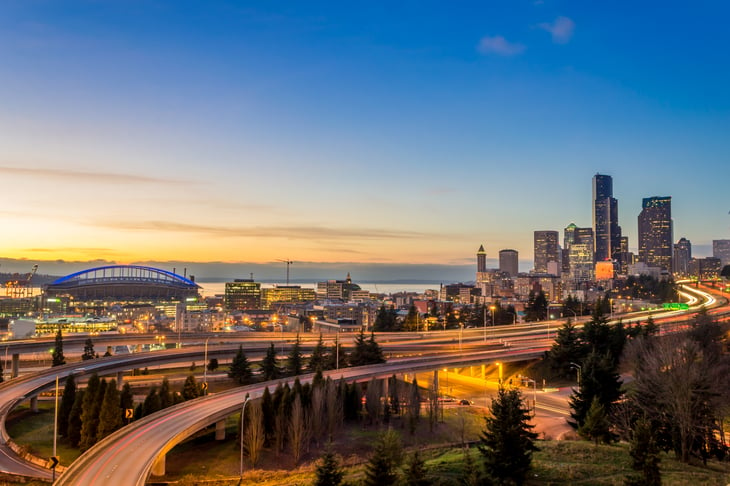
The birthplace of Amazon and Microsoft, Seattle lands on the sixth position in the cutting-edge U.S. metros chart.
Home to an ever-growing number of tech and green tech employment opportunities as well as startups, the city also ranked second for the number of green units per 100,000 residents (at 759) and homes with broadband access (93%).
7. Denver, CO
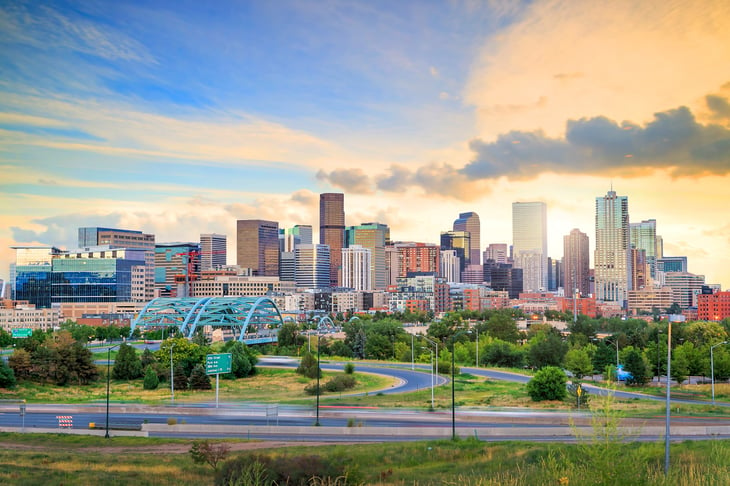
Coming in at No. 7 in the chart, Denver also ranked third for the number of homes with EV access. The metro is fast becoming a veritable hotspot for startups, and a significant percentage of the local jobs are in either tech or green tech industries.
Not only that, but the city also took the fourth spot for the number of green units and Energy Star buildings, and fifth for green office buildings and homes with broadband access.
8. Boston, MA
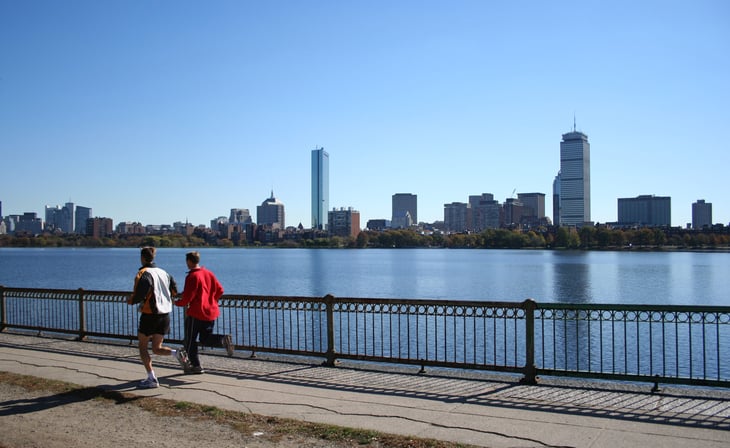
For a city almost four centuries old, Boston is increasingly poised to become a forerunner of innovation. Fostering some of the best-known universities in the U.S. as well as cutting-edge research projects, the metro is also home to a nascent startup scene.
And thanks to its fast internet speed — the third-highest in the chart — and green buildings, Boston is likely to be propelled even further in the realms of high-tech urban development.
9. Portland, OR
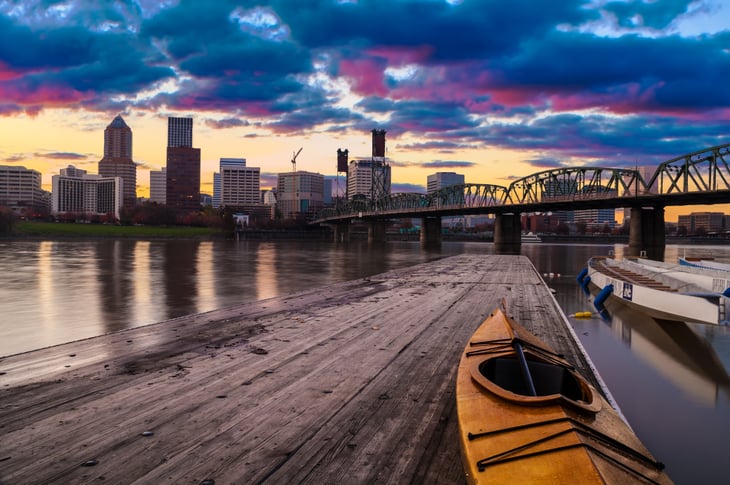
An increasingly popular destination for tech workers, Portland joins the chart at No. 9. The metro showcases a progressive attitude toward becoming a green city, ranking third for the number of green units per 100,000 residents and eighth for bike-sharing stations.
Portland also stood out due to its number of green office buildings, ranking ninth for that metric.
10. Salt Lake City, UT
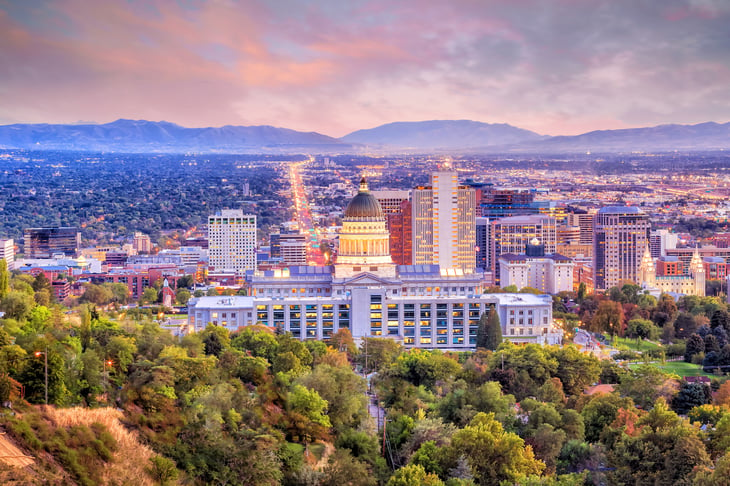
Closing out our top 10 cutting-edge U.S. metros is Salt Lake City. What makes this metro stand out is its sheer number of startups which, at 21% of total businesses, positions it at the second spot for that metric.
The prevalence of broadband access is noteworthy, where the metro ranked eighth. Green-minded as well as innovative, Salt Lake City also came in fifth for the number of EV charging stations per 100,000 residents.
Special mention: Miami, FL
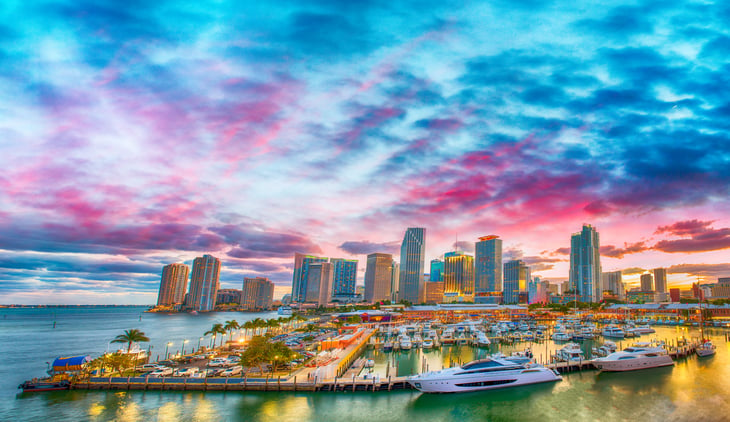
Despite not making the top 10, Miami deserves a special mention for boasting the highest average internet speed. Enjoying significant attention from startups and innovative technology developers, it’s a metro definitely worth keeping an eye on in the years to come.




Add a Comment
Our Policy: We welcome relevant and respectful comments in order to foster healthy and informative discussions. All other comments may be removed. Comments with links are automatically held for moderation.